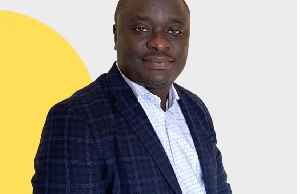 Dr George Acheampong is a Senior Lecturer at the University of Ghana Business School
Dr George Acheampong is a Senior Lecturer at the University of Ghana Business School
A senior lecturer at the University of Ghana Business School (UGBS), Dr George Acheampong, has underscored the importance of prudent contract management for Ghana’s incoming administration, especially in the current economic climate.
Dr. Acheampong emphasised that while calls from civil society organisations (CSOs) to annul contracts, particularly those involving local Ghanaian businesses, such actions must be weighed carefully to avoid harming the economy.
The advice comes on the back of calls by some CSOs in the Extractive Industry, asking the incoming government to terminate the revenue assurance contract between the GRA and SML, Abolish the Agyapa Royalty Deal, and Review the Minerals Income Investment Fund, among a host of other demands.
He acknowledged that some contracts may lack transparency and merit scrutiny, but argues that blanket annulments could lead to financial liabilities, including judgment debts, and destabilise Ghanaian businesses, which are crucial for economic growth.
“Before terminating any agreements, a thorough review is necessary. We must ensure these decisions are not made hastily, as they could further damage our national coffers,” Acheampong urged.
He stressed the importance of engagement and dialogue, not only with the businesses involved but also with CSOs.
He also advocated for transparent renegotiations of contracts to better align them with the country’s development goals, ensuring they benefit both the government and local enterprises.
“We cannot afford to destabilize Ghanaian businesses; they are key to our economic sovereignty,” he said in an article copied to the media.
The article also highlighted the role of CSOs in promoting accountability but warned against campaigns that disproportionately target local businesses in favour of foreign entities.
Acheampong called for responsible advocacy that benefits the broader national interest.
He concluded with a call to the incoming administration: “Act cautiously, review contracts comprehensively, and ensure the decisions are inclusive, involving all relevant stakeholders. The ultimate goal is to maximize value for the Ghanaian people.”